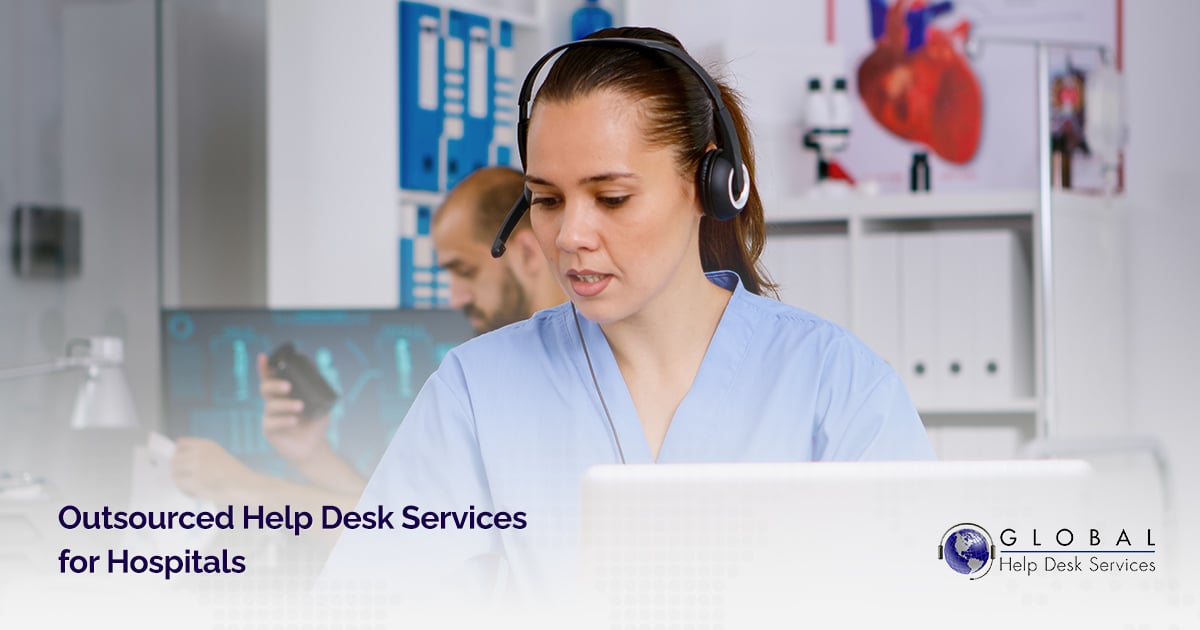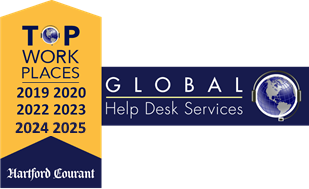Hospital IT help desks are nothing to outsource lightly.
Not only are hospital systems entirely different from most corporate IT, but downtime can have serious patient care repercussions. So, whatever help desk vendor you choose has to be up to the task.
But, how do you screen them? Here, we’ll share the different things to think about, do, and look for when outsourcing your hospital’s IT help desk.
First, Determine Your Needs
What pain points are you trying to solve by outsourcing? And do you know what all your help desk pain points are? What are the nurse managers saying? What is the head of the ED saying? What are the billing and budgeting people saying? What are the health informatics manager and the operations director saying?
The best way to ensure you get an outsourced help desk vendor who will truly meet your needs … is to understand precisely what those needs are:
- It may be that your needs are simple: You just want someone to handle your Level 1 requests like password resets and other simple tasks, to take some pressure off your in-house help desk.
- Or your needs may be more complex, where you want a vendor who will deeply understand your entire tech stack and provide a greater breadth of coverage.
- Or perhaps you even need a vendor with enough experience to tell you how your hospital help desk could be more effective and efficient – and then to design a better structure.
Whatever your needs are, they’ll be much better met if you thoroughly uncover them as a team before evaluating vendors.
Do They Understand the Risks?
The EHR system in the ER is down for 20 minutes. Everybody’s in pen-and-paper mode. Discharges are delayed and the waiting room begins to get even busier. The charting piles up and later, while entering in their manual notes, some coding errors occur.
And that’s on a good day. On a bad day, when hospital IT systems are down, it can negatively affect patient care.
Does your potential help desk vendor appreciate that some of the calls placed to your help desk have almost the same level of urgency as a Code Blue?
Any third-party help desk that you partner with must understand that many calls relate to technical issues that directly affect patient care. They must appreciate the need for critical communication between the help desk and other support groups. And they should be able to show a successful track record in handling ultra-time-sensitive issues.
Success Story: Shining a Spotlight on Health Care Help Desk Solutions
How Familiar Are They With Your Clinical Hardware and Software?
The clinical systems that you use in your hospital to deliver patient care are different from the general IT systems supported by traditional IT help desks. You appreciate this difference, but does your potential help desk partner?
For example, does the outsourced hospital help desk vendor you are considering understand that Electronic Medical Records are a critical part of how your hospital operates?
Any firm you outsource your hospital help desk to must understand the changing landscape of HIS support around Meaningful Use, IDC-10, EHR/EMR, CDS and HIE's, and other vital areas of your clinical environment. Listen to hear if the vendor uses the word “dynamic” when describing your environment. Bonus points if they do.
Your hospital help desk provider must have expertise fielding support tickets and answering technical questions about your types of clinical hardware and software. Ideally, they have expertise at providing seamless ways to manage real-time technical support requests and to update tickets submitted to your hardware and software vendors.
What About Compliance?
Some patients are afraid of the c word—cancer. And some outsourced help desk providers are afraid of their own c word—compliance.
Naturally, any hospital help desk supplier you partner with must be all in when it comes to complying with HIPAA regulations. Your reputation depends on it. This means you must screen all candidates to ensure that they understand the latest restrictions associated with providing service in a HIPAA-compliant environment. Ask them if they know what a BAA agreement is and if they have one. Ask them to describe the safeguards they have in place to ensure that their help desk agents protect your patient information and maintain your HIPAA compliance.
Success Story: Improving Efficiency in Health Care Help Desk Operations
The Hospital Help Desk You Need to Deliver the Best Outcome
Outsourcing your hospital help desk is a smart business move. It increases your first-call resolution rates, lowers your cost per ticket, increases customer satisfaction, improves efficiency, ensures you are employing best practices, and more.
But these benefits will only be yours if you partner with an outsourced help desk provider that has experience in the hospital and health care space. You need a help desk provider who understands your unique clinical hardware and software, and your unique challenges as a hospital.
Learn more about IT Help Desk Outsourcing, and decide if Global Help Desk Services, Inc. is the right fit as your outsourced hospital help desk.


